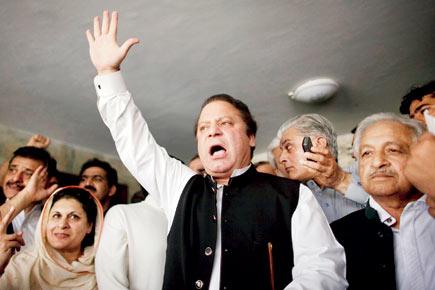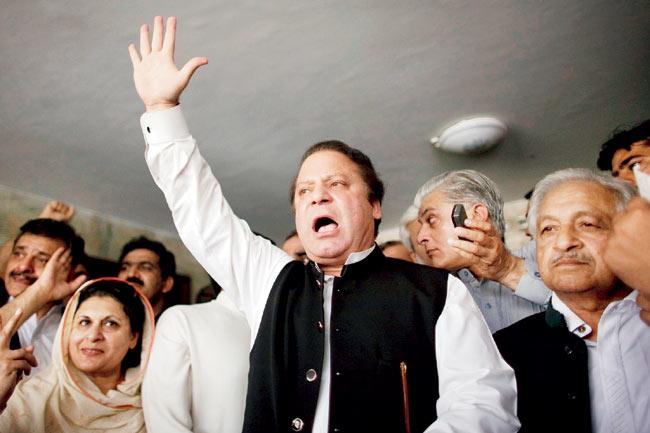Pakistan celebrated its Republic Day on March 23. This year too, our leaders paid lip-service to the founding father’s vision of a country where everyone would be treated equally regardless of his/her religion or caste or creed

 Pakistan celebrated its Republic Day on March 23. This year too, our leaders paid lip-service to the founding father’s vision of a country where everyone would be treated equally regardless of his/her religion or caste or creed.
Pakistan celebrated its Republic Day on March 23. This year too, our leaders paid lip-service to the founding father’s vision of a country where everyone would be treated equally regardless of his/her religion or caste or creed.
ADVERTISEMENT
Unfortunately, this is not the case. Minorities, especially religious minorities, have had a tough time in this country.

Endangered minorities: The Sharif government and the army have decided to be part of the anti-Shia bloc in the Middle East, which will not just lead to consequences internationally but will lead to the worst civil war the country has ever seen
Our rulers — both military and civilian — have let us down when it comes to the rights of minorities. Burning of Hindu temples, attacking Christian churches and burning of Christian localities, target-killing of Ahmadis and attacks on Ahmadi mosques, Shias being target killed on a regular basis and other such minority rights violations are a black mark on Jinnah’s vision. Our laws have not helped matters either. Blasphemy laws are a stark reminder of how they can be misused to persecute innocents in the name of religion. The assassinations of Governor Punjab Salmaan Taseer and federal minister Shahbaz Bhatti due to their unwavering commitment to minority rights should have been a wake-up call to the rulers of this country. Instead, their martyrdom resulted in ending the debate on amending or repealing the blasphemy laws altogether.
Pakistan was not meant to be an Islamic state for all Muslims of the subcontinent; had it been the case, all Muslims would have moved to this side of the border. Muslims of minority regions in the subcontinent were at the forefront of the Pakistan Movement. Barring East Bengal, the partition of united India by the British led to the country being created in those areas where there was no mass movement for a new state. Partition created a fissure in the historical process. It is because of this reason that Muslim League leaders from minority provinces then invented a new ideology and gave an ideological colour to the new state because they lacked a constituency there. They subscribed to the notion that Pakistan was to be a state that would become a laboratory of an Islamic state. This was in clear negation of the 1940 Resolution as there was no reference to this new country being a religious state in the resolution. The adoption of the Objectives Resolution in 1949 and further amendments in all constitutions that followed resulted in making religion part of the business of the state.
The Sharif government and our army have now decided to become part of the anti-Shia bloc in the Middle East.
Opening up an anti-Shia front will not just lead to consequences internationally but will lead to the worst civil war this country has ever seen. As Mr Najam Sethi wrote in his editorial (‘Leasing out Pakistan’, The Friday Times) last week, the Pakistani ruling classes and military establishment “are rolling up their sleeves to stir the Middle-East cauldron at the behest of a rich ‘friend’ … We are making another irrevocable blunder.”
The rise of fundamentalism in this country is because of the flawed policies of both military and civilian regimes.
Instead of learning from history, we are hell bent on repeating the same old mistakes. It is high time that our rulers stop renting out our state to the rich and the mighty and should rather work for the welfare of our own people.
The writer is a Pakistani journalist. Reach her at mehmal.s@gmail.com
 Subscribe today by clicking the link and stay updated with the latest news!" Click here!
Subscribe today by clicking the link and stay updated with the latest news!" Click here!







